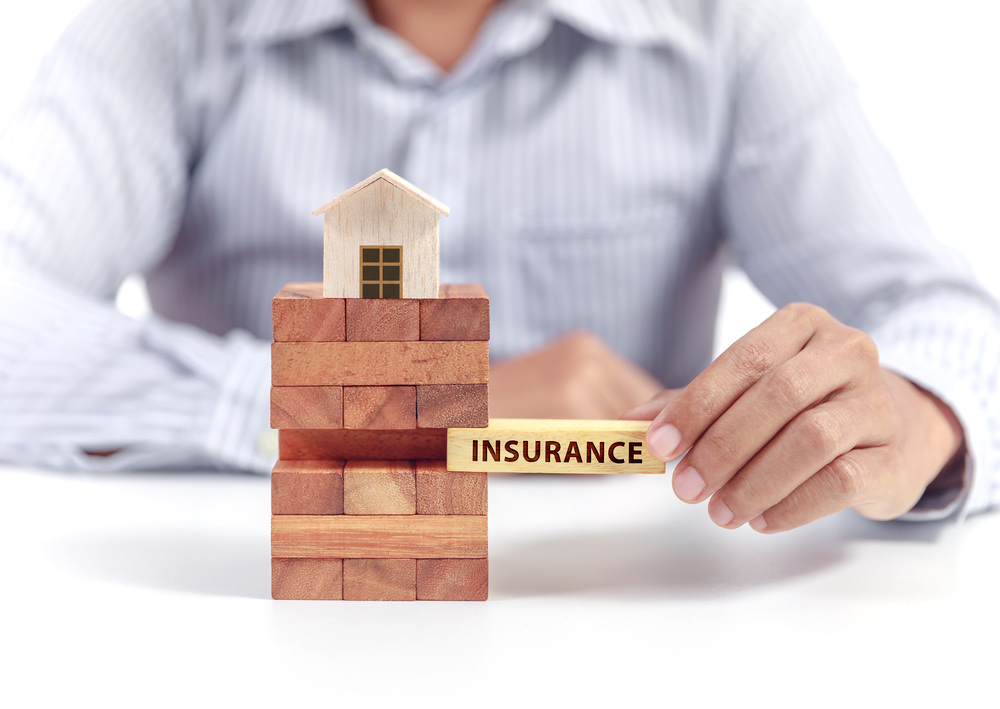Reasons to Purchase Homeowners Insurance
Free Insurance Comparison
Compare Quotes From Top Companies and Save
Secured with SHA-256 Encryption
Kristen Gryglik
Licensed Insurance Agent
Kristen is a licensed insurance agent working in the greater Boston area. She has over 20 years of experience counseling individuals and businesses on which insurance policies best fit their needs and budgets. She knows everyone has their own unique needs and circumstances, and she is passionate about counseling others on which policy is right for them. Licensed in Massachusetts, New Hampshire,...
Licensed Insurance Agent
UPDATED: Mar 5, 2024
It’s all about you. We want to help you make the right coverage choices.
Advertiser Disclosure: We strive to help you make confident insurance decisions. Comparison shopping should be easy. We are not affiliated with any one insurance provider and cannot guarantee quotes from any single provider.
Our insurance industry partnerships don’t influence our content. Our opinions are our own. To compare quotes from many different insurance companies please enter your ZIP code on this page to use the free quote tool. The more quotes you compare, the more chances to save.
Editorial Guidelines: We are a free online resource for anyone interested in learning more about insurance. Our goal is to be an objective, third-party resource for everything insurance related. We update our site regularly, and all content is reviewed by insurance experts.
Unlike auto insurance, home insurance is not mandated by law in any jurisdiction.
At the same time, it is a de facto necessity for most homeowners, primarily to protect their dwellings, belongings, and personal liabilities from various perils, as well as to satisfy the contractual requirements of most mortgage lenders.
Why Do I Need Homeowners Insurance?

Primary residences double as important stores of wealth for many households, making it essential for them to maintain insurance against any potential loss. According to the Survey of Consumer Finances, housing represents between 32 and 39 percent of the typical household’s total financial holdings. A homeowners policy can protect this valuable asset against everything from a house fire to a lawsuit arising from a dog bite that occurs on its premises.
In addition to such protections, homeowners insurance is often a contractual requirement when transacting with a mortgage lender. A mortgage loan uses the secured real estate in question as collateral, which can be sold off via foreclosure to pay off the loan if a borrower defaults on their obligations.
In other words, it’s in the interests of the mortgage servicer to ensure that the home can be rebuilt or repaired and, by extension, to require that homeowners carry insurance.
You may also be interested in Hazard Insurance vs Homeowners Insurance.
A homeowners insurance policy performs two essential functions.
Home Insurance Protects Your Home and You
First, it financially protects the dwelling itself, the items within it, and the personal liability of its policyholder (and possibly other items and situations) against multiple perils. The exact level of coverage will vary by insurer and policy type. For example, a barebones HO-1 (basic form) policy will only apply to specifically named perils such as:
- Vandalism
- Hail and windstorms
- Riots and civil commotion
- Fire and smoke
By contrast, a HO-3 (special form) policy will cover everything a HO-1 does, other hazards such as falling objects or accidental water overflows, and generally anything not governed by a specific exclusion within the policy’s text. A HO-5 policy (HO-5) goes even further and an HO-8 (older home form) provides special coverage for aging, historical, and significantly depreciated homes.
It Raises the Value of Your Home
Second, it helps buoy the overall value of the property. In the event of a covered loss, the policy may pay to repair or rebuild the dwelling as well as any attached and detached structures, plus replace lost items.
Such coverage keeps a home in top-notch condition, which is beneficial for both homeowners and mortgage lenders. Homeowners can more easily build equity in their residences, while mortgage lenders (who have a lien on the property until the loan is paid in full) can better stabilize its value and preserve the worth of the underlying mortgage.
Top 6 Reasons to Purchase Homeowners Insurance
In addition to the two major reasons previously described, homeowners insurance serves several other key purposes. Like any type of insurance, it relieves the burden of paying for losses out-of-pocket and provides peace of mind. Let’s put it all together, in these six big reasons you should buy a homeowners policy for your residence.
1. You are Financing Your Home with a Mortgage
Most homes are mortgaged. A 2017 analysis of 150 million U.S. homeowners from ATTOM Data Solutions found that only 34 percent of them had full equity, meaning they had either already paid off their mortgages or never had one to begin with.
Mortgage lenders require that the secured properties they are using as collateral be insured. Each lender will provide its own specifications for what an acceptable homeowners policy must cover. For example, some lenders don’t consider basic HO-1s adequate coverage and may stipulate that more comprehensive protection is needed. Lenders will likewise establish minimum limits, usually in an amount sufficient to pay off the outstanding balance of the mortgage loan.
Additionally, a lender will be added to the policy as a loss payee, meaning that it will be reimbursed first by the insurer after a covered loss. Most loss payee clauses also contain text (“its successors and/or assigns”) ensuring that the insurance policy will apply to any bank that purchases the mortgage.
Note that failing to maintain insurance that meets a lender’s requirements could result in your property being assigned force-placed insurance. This insurance is very expensive and has much more limited coverage than standard policies bought on the regular market.
2. You Need Protection Against Natural and Manmade Disasters
Tornados, windstorms, hail, lightning, house fires, HVAC breakdowns, vandalism, and other perils damage countless homes every year, which is why they are normally covered by even the most basic policies. A HO-3 or HO-5 will provide the most complete coverage.
However, it’s important to note that certain hazards are widely excluded from homeowners policies, most notably floods, sump pump overflows, hurricanes and earthquakes.
Damages from lack of maintenance, such as roof leaks, might also be excluded; check to see if your policy includes them as named perils. Plus, avoid working with roofers or other contractors who go door-to-door or post flyers, as they might try to get you to sign a contract for work that your policy won’t cover or that will cost its premiums to rise. For more information, read our “Does Homeowners Insurance Cover Roof Leaks: Everything You Need Know“).
Homeowners in high-risk areas should consider purchasing additional policies, such as one under the National Flood Insurance Program, to be on the safe side. The costs of this additional coverage and of a general homeowners policy will vary widely by location, in part due to the differing levels of exposure to certain types of disasters. For example, home insurance policies in Florida are usually more expensive than ones in states not facing the regular risk of a tropical cyclone.
3. You Want to Insure Your Belongings
A home insurance policy will usually cover more than just the dwelling. More specifically, homeowners can rely on their policies to cover a wide variety of everyday items and valuables within the home itself.
Some carriers offer special policy endorsements (riders) for high-cost items such as pieces of jewelry, silverware collections, rugs, firearms, and more. These endorsements provide coverage beyond the limits that apply to other belongings.
When setting up a homeowners policy, it’s important to determine whether the insurer is covering your possessions under actual cash value or replacement cost value. The latter pays for what it would cost to replace a lost item with one of equivalent value, without any deduction for depreciation. That makes it the better option in most cases.
4. You are Looking for Personal Liability Protection
It’s possible you could be named in a lawsuit related to something that happened on your property. Someone could be bitten by one of your pets, slip on an icy sidewalk, fall down a staircase, or otherwise suffer an injury.
In these situations and many others, it is beneficial to have liability insurance. A liability policy can help pay for your legal fees, the medical expenses and lost wages of the party injured, and any settlements that you reach.
A standard feature of many policies, liability coverage can spare you a potentially considerable out-of-pocket expense. It is especially worth having if your home has a swimming pool, trampoline, or other risky feature that is likely to attract a guest’s attention.
5. You Need Somewhere to Live After Your Home is Damaged
If your home became uninhabitable, where would you go? Fortunately, many homeowners policies have built-in provisions that would cover you in such an event.
Known as loss of use coverage or, more commonly, additional living expenses (ALE), this type of insurance will pay for the costs of your stay at a hotel or other location until your primary residence is fully repaired or rebuilt. ALE may also cover groceries, meals, and additional vehicle mileage as well.
ALE coverage is subject to a policy limit. It is usually calculated as a percentage of the dwelling coverage, which in many cases would result in tens of thousands of dollars in funds available for loss-of-use circumstances.
6. You Want to Save on Other Insurance Policies While Gaining Peace of Mind
A homeowners policy should provide assurance that you can weather the most common threats to your home. Additionally, it could help you save on your auto and life insurance as part of a bundle.
Many carriers will reduce the costs of a homeowners policy if it’s paired with another item from their product portfolio. When shopping for home insurance, it’s always advisable to look out for these opportunities for savings, many of which (like bundling) can reduce your premium without any tradeoff in the extent of coverage.




